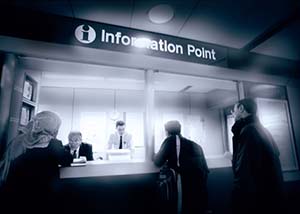Decades of well-intentioned but outdated regulation have led to a range of fare options that have not kept pace with technology or how people work and travel today.
Britain’s rail companies, a partnership between the public and private sectors, are launching a public consultation to seek ‘root and branch reform’ of fares and ticketing regulation.
The announcement follows new research by KPMG which shows that only one in three (34 per cent) rail customers is very confident that they bought the best value ticket for their last journey and fewer than one in three (29 per cent) were very satisfied with the experience of buying their ticket.
Reform has the potential to transform the buying experience for customers, making it easier for people to be confident they are getting the right ticket.
Well-intentioned but ultimately counterproductive regulations underpinning rail fares have remained unchanged from the mid-1990s, when the 1995 Ticketing Settlement Agreement spelled out how fares should be set and sold.
It assumes all customers will buy their ticket by visiting a ticket office and sets out in detail how customers must be able to buy a ticket from each of the 2,500 stations in Britain to every other station in the country.
Since then, further layers of requirements have been added through individual franchise agreements, with little or nothing taken away. This means that long-standing anomalies are becoming locked in resulting in bigger problems for customers, and there are now around 55 million different fares.
As a result it has become increasingly difficult for rail companies to guarantee the right fare. Regulations have failed to keep pace with the rise of smartphone technology or how people work and travel today, with part time working and self-employment having increased by over a third in 22 years.
Updated, fit-for-purpose fares regulation would enable the right changes for the long-term. That’s why the industry will be working with Transport Focus, the passenger watchdog, to launch a public consultation next month to hear the views of businesses, passenger groups, stakeholders, employees and the public on what a future range of fares should look like.
The consultation will help the industry to establish a road map which delivers against these principles. The industry wants to then work with governments to make fares simpler, easier and more trusted while continuing to enable investment in the railway.
A final report will be informed by the consultation and will make proposals to governments with options for fares reform. The industry’s proposals will be designed to be neutral in overall revenue terms with no change in average fares, and therefore not requiring any extra taxpayer support for the railway. A fares offering which is trusted, though, has the potential to attract more people to travel by train which would support investment in rail or give governments the option to change the balance between taxpayers and farepayers for funding the railway.
The change the industry is calling for comes on top of improvements it is already making to fares where it can, and by working with governments. These include cutting jargon, clearer information about peak and off-peak times and better information about how people can use their ticket, part of a fares action plan agreed between industry, passenger groups and government. This is alongside the on-going roll-out of smart-ticketing, which will also help make it easier for people to buy the right ticket. But these changes alone will not go far enough in making things better for customers.
Commenting, Paul Plummer, Chief Executive of the Rail Delivery Group, said:
“As part of the industry’s plan for change, we want to work in partnership to drive root and branch reform of well-meaning but out-dated fares regulation. Working together, we want to develop proposals to reform fares and regulation to make it easier for our customers to get the right ticket, enhancing trust in the system and supporting continued investment to improve the service.
“Unpicking the regulation of a £10bn-a-year fares system that underpins such a vital public service means there are no quick-and-easy solutions. The change that’s needed won’t be easy and the industry doesn’t have all the answers, which is why we want to hear views from passengers, communities and businesses in all parts of the country.
“There have already been improvements and more are on the way but this consultation will enable us to create a clear roadmap with the country so that we can make the right changes for the long-term more quickly.”
Anthony Smith, Chief Executive of Transport Focus, said:
‘Rail passengers want a simpler, more understandable and modern fares system which matches the way we now travel. Opening up the debate and looking at the pros and cons of various reform options is welcome. Transport Focus will make sure the passenger voice is heard in these debates.’







